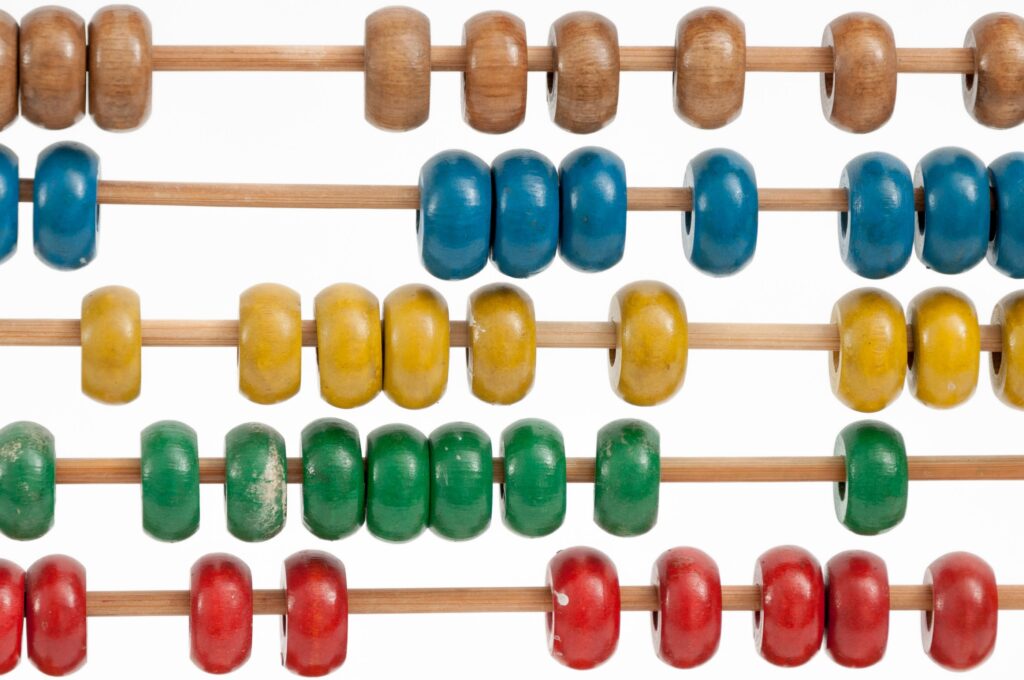
Math may not be everyone’s favorite subject, but it is an important one. Math helps children develop and sharpen their reasoning and critical thinking skills, as well as problem-solving ability. Studying and learning math can encourage curiosity, nurture innovation, and prepares children with skills they need in multiple areas of life.
Children start with basic math skills like counting, grouping, recognizing numbers, adding and subtracting, and patterns. As they move through math in their elementary years, math skills are built upon each other for greater understanding and use. Homeschooling provides a rich experience as we can tailor our lessons in math to fit our children. Some will excel in math and be able to jump into higher levels in their middle school years. While others will be finishing up the core concepts as they enter higher education. Whatever level your child is on, math will help them tremendously as they move through their schooling.
There are so many wonderful curriculums available to teach your little one math. Below is a list of curriculums, broken up into teaching methods, to help you navigate all the options out there. We encourage you to explore these curriculums to get an idea of what is available. If you don’t find something that speaks to you and your child, keep looking. There are many other options available to suit your needs.
Traditional & Classical:
CTC Math
- Mastery approach
- Online and subscription-based
Generation Genius Math
- Fun, interactive, standard-based videos
- Lesson plans and teacher guides
- Reading materials and discussion questions
- Paper quizzes and Kahoot! online quizzes
- Subscription required
Horizons Math
- Uses workbooks
- Uses the spiral method
- Has no script- you lead the lesson independently
Khan Academy
- Free online program
- Child sits through an instructional video and then is given exercises to complete
Life of Fred
- Presents math lessons through a story format
- No guide or script
Math Mammoth
- Learn building blocks rather than just memorizing rules and formulas
- Aligned with common core
- Works well for visual learners
Math-U-See
- Multisensory approach to learning
- Organizes learning math by level rather than by grade
- Uses a mastery approach to learning
Saxon Math
- Uses drills to teach math skills and concepts
- Grade levels are blended (level 5/4 would work for 4th or 5th)
- Uses the spiral method
Singapore Math
- Encourages students to think like mathematician- learns how to understand math
- Parents need to plan ahead, though the lower levels do include a teachers manual
Teaching Textbooks
- Courses are sold as apps
- The textbook is available as an e-book through the app
The Simply Good and the Beautiful Math
- Open-and-go style
- Christian approach
- Uses a spiral method
Charlotte Mason:
The Charlotte Mason Elementary Arithmetic
- Teaches math with the Charlotte Mason Method
- Short, interactive lessons
- Individual books
- Placement guides available to know what book series to use
Montessori:
Uses Montessori Materials in Lessons
- Bead and stamp materials, strip boards, physical shapes
- Makes a bridge between abstract and concrete math concepts
- Hands-on learning
- Child-led
Math Tech Tools
Math Games from Toy Theater
- Free online games
- Great for supplementing
- Cover a wide range of skills: from counting to telling time, probability, area, estimation, you name it!
Teacher Tools from Toy Theater
- Free online assessment tools for basic math concepts






+ show Comments
- Hide Comments
add a comment